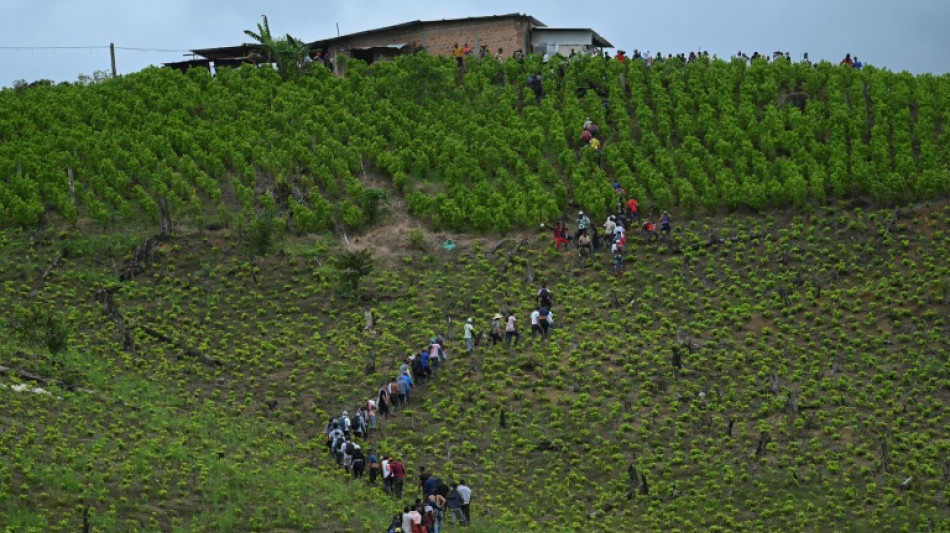
-
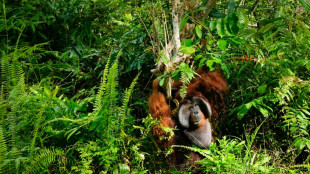 US demand for RVs fuels deforestation on Indonesia's Borneo: NGOs
US demand for RVs fuels deforestation on Indonesia's Borneo: NGOs
-
Kneecap rapper faces court on terror charge over Hezbollah flag
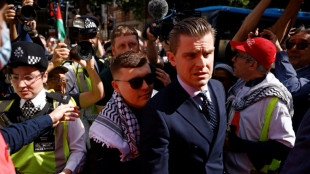
-
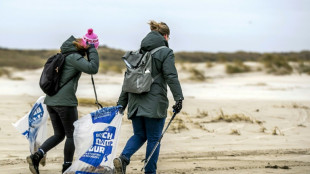 Dutch divers still haul up debris six years after container spill
Dutch divers still haul up debris six years after container spill
-
Asian markets dip after US tech slide
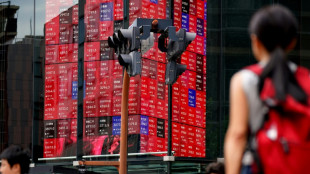
-
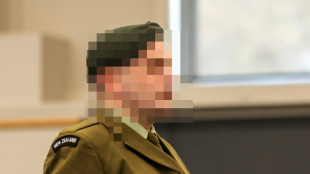 NZ soldier sentenced to two years' detention for attempted espionage
NZ soldier sentenced to two years' detention for attempted espionage
-
Time to Go: Japan pro board game player retires at 98
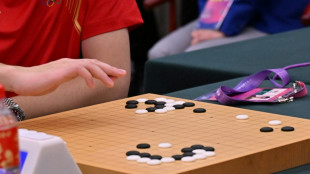
-
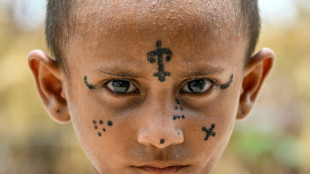 City girls snub traditional Hindu face tattoos in Pakistan
City girls snub traditional Hindu face tattoos in Pakistan
-
Australia lashes Netanyahu over 'weak' leader outburst
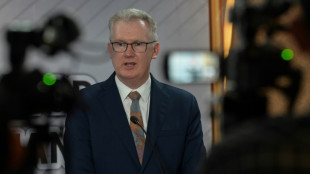
-
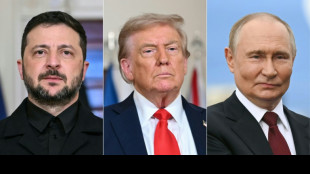 Polar bear waltz: Fake Trump-Putin AI images shroud Ukraine peace effort
Polar bear waltz: Fake Trump-Putin AI images shroud Ukraine peace effort
-
Sounds serious: NYC noise pollution takes a toll
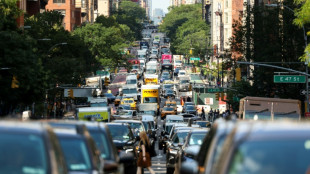
-
 Trump slams US museums for focus on 'how bad slavery was'
Trump slams US museums for focus on 'how bad slavery was'
-
US agrees to talks with Brazilian WTO delegates on tariffs
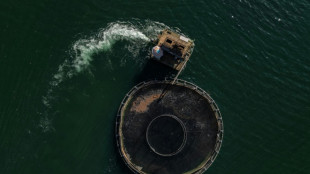
-
 Israel-France row flares over Macron's move to recognise Palestinian state
Israel-France row flares over Macron's move to recognise Palestinian state
-
White House starts TikTok account as platform in US legal limbo

-
 Syrian, Israeli diplomats met in Paris to discuss 'de-escalation': report
Syrian, Israeli diplomats met in Paris to discuss 'de-escalation': report
-
Wanyonyi, the former cattle herder ready to eclipse Rudisha

-
 Swiatek, Ruud romp into US Open mixed doubles semis, Alcaraz, Djokovic out
Swiatek, Ruud romp into US Open mixed doubles semis, Alcaraz, Djokovic out
-
Mbappe lifts Real Madrid past Osasuna in La Liga opener

-
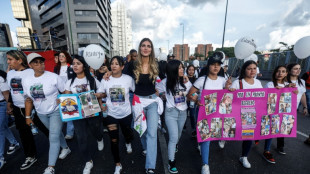 Venezuela says 66 children 'kidnapped' by the United States
Venezuela says 66 children 'kidnapped' by the United States
-
Brazil nixes red World Cup jersey amid political outcry
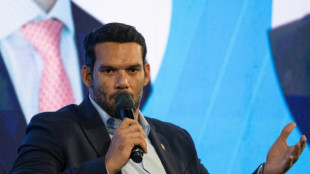
-
 Real Madrid scrape past Osasuna in La Liga opener
Real Madrid scrape past Osasuna in La Liga opener
-
McIlroy backs 'clean slate' season finale format change

-
 'Call of Duty', 'Black Myth' wow Gamescom trade show
'Call of Duty', 'Black Myth' wow Gamescom trade show
-
Isak says 'change' best for everyone after Newcastle trust broken

-
 Salah makes history with third PFA player of the year award
Salah makes history with third PFA player of the year award
-
Rabiot, Rowe put up for sale by Marseille after bust-up

-
 Weary Swiatek wins US Open mixed doubles opener
Weary Swiatek wins US Open mixed doubles opener
-
Miami fearing Messi blow ahead of Leagues Cup quarter-finals

-
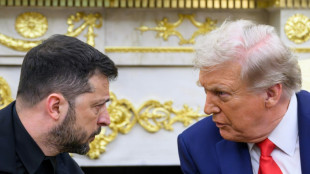 Trump rules out US troops but eyes air power in Ukraine deal
Trump rules out US troops but eyes air power in Ukraine deal
-
Trump course back on PGA schedule for 2026 season: tour

-
 Mexican boxer Chavez Jr. deported from US over alleged cartel ties
Mexican boxer Chavez Jr. deported from US over alleged cartel ties
-
Former Mali PM Choguel Kokalla Maiga charged with embezzlement, imprisoned
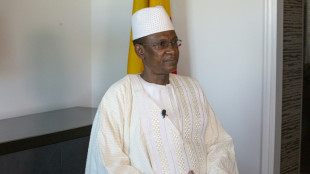
-
 Sinner withdraws from US Open mixed doubles draw
Sinner withdraws from US Open mixed doubles draw
-
Mexican drug lord Zambada to plead guilty in US court
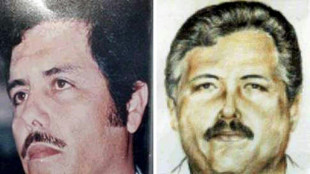
-
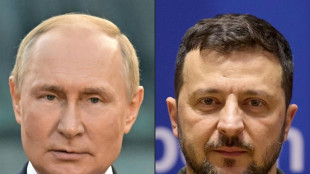 Russians welcome idea of Putin and Zelensky meeting
Russians welcome idea of Putin and Zelensky meeting
-
Spanish PM says 'difficult hours' left in wildfire fight
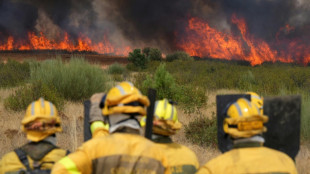
-
 Ex-owner of world's largest rhino farm arrested for trafficking
Ex-owner of world's largest rhino farm arrested for trafficking
-
South Africa ring changes after Australia defeat in Rugby Championship

-
 Sinner withdrawn from US Open mixed doubles draw
Sinner withdrawn from US Open mixed doubles draw
-
Serbia protesters accuse police of abuse and warn of 'spiral of violence'
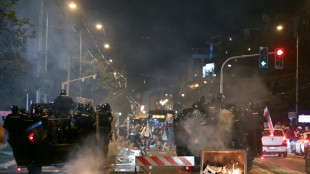
-
 Ronaldo gets Hong Kong hero's welcome, avoids Messi pitfall
Ronaldo gets Hong Kong hero's welcome, avoids Messi pitfall
-
Israel demands release of all hostages after Hamas backs new truce offer
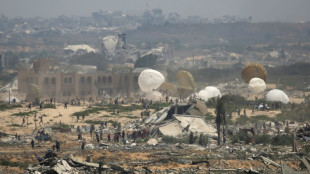
-
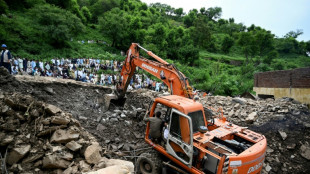 Death toll from northern Pakistan monsoon floods hits almost 400
Death toll from northern Pakistan monsoon floods hits almost 400
-
Trump says US air support possible for Ukraine security guarantee

-
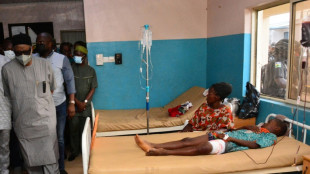 Nigerian judge delays trial over 2022 church massacre
Nigerian judge delays trial over 2022 church massacre
-
Lionesses hero Agyemang returns to Brighton on loan

-
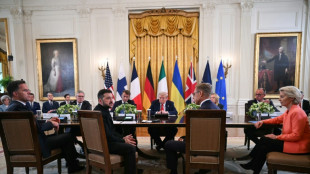 Stock markets cautious with eyes on Ukraine talks, US rates
Stock markets cautious with eyes on Ukraine talks, US rates
-
Record number of aid workers killed in 2024, UN says
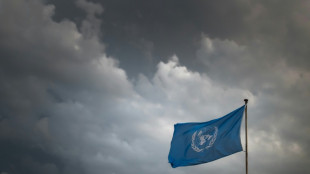
-
 Klopp 'decisive' in move to Leipzig, says Bakayoko
Klopp 'decisive' in move to Leipzig, says Bakayoko
-
UK drops demand for access to Apple user data


Cocaine Canyon: Inside Colombia's guerrilla-run micro-state
Drug-running guerrillas have repelled military efforts to retake a slice of southwest Colombia -- a virtual microstate where the rifle rules.
No one enters or leaves without the guerrillas' say-so, state-issued IDs are worthless and cocaine production is not just tolerated, but encouraged.
Welcome to Micay Canyon, a lush mountain-fringed valley in southwest Colombia where the self-styled Estado Mayor Central (Central General Staff) are the law.
On dirt roads leading into the valley, rifle-wielding rebels -- some in camouflage, some in civilian clothes -- stop every bike, car or truck trying to enter.
The men at the checkpoints demand to see a rebel-issued ID card, which must be renewed every year and also serves as an entry permit.
Outsiders are rarely allowed access. But once through the barricades, Micay has the trappings of a state within a state.
Residents pay $17 a year for access to ambulance care. Miners pay a cut of their illicit profits to local committees. Sex workers must get rebel-mandated health checks.
There are no police to be seen and no evidence of government-run schools, hospitals or municipal services.
In October, Colombian President Gustavo Petro launched Operation Persius to retake control of the area and capture EMC leaders.
Their grip on Micay had become a direct challenge to the primacy of the state, a symbol of Petro's failed promises to bring peace, and a security threat to a UN climate summit happening in nearby Cali.
But Operation Persius suffered a series of humiliating and deadly setbacks.
On Saturday, AFP reporters inside EMC territory witnessed 28 captured police and one soldier being marched out of the territory under a hail of abuse.
"Get out!" a furious mob shouted as the captives walked with heads bowed.
Among them was Army Major Nilson Bedoya.
"I'm thinking of my family, my wife, my son Nicolas. They are waiting for me at home," he said testily amid the jeers.
On Tuesday, five soldiers were killed by a bomb buried in a road embankment.
They had been trying to reinstall a bridge destroyed by rebels.
- 'Bringing war instead' -
Life in Micay Canyon is dangerous and expensive, and poverty is pervasive -- despite being a center for one of the world's most lucrative crops.
Locals quietly express unease about both the government and the rebels.
"We are scared, fearful, desperate, hopeless, and sad. That is what we feel in our hearts," a 67-year-old, who asked for anonymity for fear of reprisals, told AFP.
The guerrillas have convinced many that government troops will burn down homes and spray the coca crop, leaving them with no work and no income.
In reality, Petro's government has sworn off forced coca eradication.
But the midnight din of military flights followed by booming explosions does little to convince locals that the state is friendly.
Some locals, speaking in hushed tones, wearily confess that they have been ordered by the guerrillas to confront and help expel the military.
AFP reporters witnessed swaths of empty coca fields, with workers redeployed to drive the army out of two nearby areas.
Scores of locals were seen confronting a group of soldiers, shouting at them to leave the area.
Outnumbered and not willing to shoot unarmed civilians, the soldiers were forced to retreat.
There is deep disillusion with the government and Petro in particular.
A former guerrilla himself, Petro won 81 percent of the votes in the broader province surrounding Micay.
"It was supposed to be the government of change, and look at how it attacks us, bringing war instead," said one 37-year-old coca harvester.
Petro claims that the locals are being "instrumentalized" by armed groups.
For researcher Juana Cabezas of the NGO Indepaz, "Colombia has not returned to the old days" of a decades-long conflict that killed hundreds of thousands across the country.
But since the main guerrilla group, the FARC, disbanded in 2017 there has been a fracturing and reconfiguration of armed groups.
For residents in Micay Canyon, those hopes for peace are a distant memory.
"Our dreams are dashed," says one woman, widowed after her husband's murder.
"The only thing left for us is death."
F.AbuShamala--SF-PST
